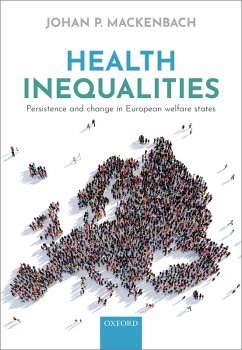The world we live in is hugely unequal. People in a better socioeconomic position do not only lead more comfortable lives, but also longer and healthier lives. This is true not only in the poorer parts of the world but also in the richest countries, including the advanced welfare states of Western Europe which have successfully pushed back poverty and other forms of material disadvantage. Why are health inequalities - systematically higher rates of disease, disability, and premature death among people with a lower level of education, occupation or income - so persistent? How can we expect to reduce this when it persists even in the most advanced states? Written by a leading figure in public health, this book looks to answer these questions by taking a broad, critical look at the scientific evidence surrounding the explanation of health inequalities, including recent findings from the fields of epidemiology, sociology, psychology, economics, and genetics. It concludes that a simplistic view, in which health inequalities are a direct consequence of social inequality, does not tell us the full story. Drawing upon a unique series of studies covering 30 European countries and more than three decades of observations, it shows that health inequalities are partly driven by autonomous forces that are difficult to counteract, such as educational expansion, increased social mobility, and rapid but differential health improvements. Finally, the book explores how we might use these new findings to continue our efforts to build a healthier and more equal future. Offering a truly multidisciplinary perspective and an accessible writing style, Health Inequalities is an indispensable resource for health researchers, professionals, and policy-makers, as well as for social scientists interested in inequality.
Dieser Download kann aus rechtlichen Gründen nur mit Rechnungsadresse in A, B, BG, CY, CZ, D, DK, EW, E, FIN, F, GR, HR, H, IRL, I, LT, L, LR, M, NL, PL, P, R, S, SLO, SK ausgeliefert werden.









